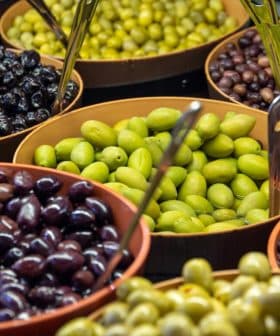Transportation Strikes in Spain Lead to Decrease in Olive Oil Exports
Officials warned that the latest setback for the sector may cause irreversible damage and lead to permanent market share loss in some key destinations.
The road haulers’ strike in Spain is causing significant disruptions to the distribution of goods in the country, leading to concerns about the impact on olive oil exports, which have seen an 80 percent reduction according to the Spanish Association of Olive Oil Exporting, Industry and Commerce. The strike has resulted in a substantial increase in olive oil prices in Spain, affecting the competitiveness of Spanish olive oil in the global market and potentially leading to long-lasting damage to the sector, with fears that even after the strike ends, the backlog of goods at ports will create further challenges for exporters.
The ongoing road haulers’ strike in Spain continues to cause alarm as the distribution of goods in the country is disrupted.
Along with internal distribution, some officials are concerned that olive oil exports are being severely impacted too.
The worst thing now isn’t the economic impact that we can suffer while the stoppage lasts; it’s that a lot of our buyers who are not able to receive our goods have resorted to buying olive oil from other countries.
“There has practically been a total cessation because we have suffered protests outside of the industries and factories, as well as in the entrance of the ports,” said Rafael Pico Lapuente, the executive director of the Spanish Association of Olive Oil Exporting, Industry and Commerce (Asoliva).
“If there hasn’t been a complete reduction in exports, then at the very least there has been an 80 percent reduction,” he added.
See Also:Trade NewsLapuente warned that the considerable export reduction would have severe consequences on the sector since Spain exports three-fourths of the olive oil that it produces.
“If you can’t export and 75 percent of the wealth comes from the exports, then we are heading down a bad path,” he said.
The strike, which has caused the average olive oil prices to increase immensely in Spain, has compounded supply chain difficulties in other areas of the edible oil market too. As a result of the war in Ukraine, sunflower oil prices have risen above €3.00 per liter in Spain, 70-percent above average.
Average olive oil prices have also risen. Prices were hovering around €4.00 per liter until March but have since increased to about €5.00 per liter.
Pico Lapuente previously told Olive Oil Times that high olive oil prices in Spain also hurt exporters as Spanish olive oil becomes less competitive than oils from Italy, Tunisia, Morocco or Turkey.
Along with impacting prices, the strike has affected other aspects of the market, such as the consumers.
Although the strike has lessened recently, Pico Lapuente said a huge part of the damage done to the sector is irreversible.
“The worst thing now isn’t the economic impact that we can suffer while the stoppage lasts; it’s that a lot of our buyers who are not able to receive our goods have resorted to buying olive oil from other countries, such as Portugal, Italy or Tunisia,” he said. “That is very bad news for us.”
Pico Lapuente said he believes the Spanish government is responsible for not tackling the conflict the right way. He added that he is worried that the image of Spain as the world leader in olive oil production and exports may be diminished.
“The government has taken a long time to act and negotiate, and the whole world has suffered the consequences,” he said.
Even when the strike ends, Pico Lapuente fears that things will not immediately go back to normal since the ports are likely to be backed up with an overload of goods needing to be moved.
“Everything that hasn’t been exported before will be exported now,” he said. “Since we already needed containers and shipping companies since the closure of the Suez Canal and the economic crisis, the problem will now be bigger.”
Pico Lapuente said the strike compounded several other factors that are creating problems for Spanish olive oil producers, including the impacts of the Covid-19 pandemic, the legacy of the currently-paused tariffs imposed by the United States and the loss of market share for Spanish olive oil in Belarus, Russia and Ukraine due to the war.









